Faculty of Tarbiyah and Teacher Training – Absolutely right, Palestine is a region of immense historical significance in Islam. This land is known as the “land of the prophets” because many great prophets in Islam were born there or undertook significant journeys in the area. Additionally, Palestine has produced many great scholars whose works are still studied and revered by Muslims today.
The history of this region’s name spans various periods, including the time of Prophet Ibrahim (AS), when the area was called Sham. Later, during Islamic history, the region was also known as Damascus, especially during and after the Umayyad dynasty’s rule. The name Palestine itself became popular in its current political and geographical context in more modern times.
Here are 9 Great Islamic Scholars of Palestinian Descent, who have been beacons of light in dark times, preserving the authenticity of Islamic teachings, and advocating for the rights of their people amid the challenges and conflicts affecting their beloved homeland:
1. Imam Ash-Shafi’i:
Imam Ash-Shafi’i, also known as Muhammad bin Idris al-Shafi’i, was born in Gaza, Palestine. In “Manaqib ash-Shafi’i” (Volume I, page 73), Al-Baihaqi narrates that Imam Shafi’i himself stated he was from Gaza. He said: “I was born in Gaza in 150 AH, and I was taken to Mecca when I was two years old.” He was skilled in poetry as well, expressing his longing for Gaza in his verses. In “Mu’jam al-Buldan” (Volume II, page 202), there is a record of his poem expressing his yearning for his birthplace.
2. Ibn Qudamah:
‘Abdullah bin Ahmad bin Qudamah al-Maqdisi is a prominent figure in the Hanbali school, known for his work “al-Mughni.” Born in 541 AH in Jama’in, a village in Nablus, Palestine (Adh-Dhahabi, “Siyar A’lam an-Nubala,” Volume XXII, page 165).
3. Ibn Ruslan:
Ibn Ruslan, also known as Ahmad bin Husain bin Ali bin Arsalan al-Maqdisi, was born in Ramallah, Palestine, in 777 AH. A notable scholar of the Shafi’i school, he wrote several important works, including commentaries on “Sunan Abi Dawud” (Khairuddin az-Zarkali, “Mausu’atul A’lam”).
4. Ibn Muflih:
Ibn Muflih, also known as Abu Ishaq Burhanuddin Ibrahim bin Muhammad bin ‘Abdillah bin Muhammad bin Muflih, was born in Ramin, a village in northeast Palestine, in 816 AH (Shamsuddin adh-Dhahabi, “al-Mu’jam al-Mukhtash lil Muhadditsin,” Volume I, page 266). He was a jurist in the Hanbali school and served as a judge in Damascus.
5. Ibn Washif al-Ghazzi:
Muhammad bin al-‘Abbas bin Washif al-Ghazzi was an expert in hadith and jurisprudence of the Maliki school. He had several prominent teachers and taught many students (Ath-Thayyib bin ‘Abdillah al-Hadhrami, “Qiladatun Nahrfi Wafayat A’yan ad-Dahr,” Volume III, page 241).
6. Zainuddin Yahya bin ‘Alwi al-Hadhrami al-Andalusi:
Although not born in Palestine, he chose to spend his remaining life in Gaza and was buried there. He was a scholar in Quranic readings, language, literature, and hadith (Adh-Dhahabi, “Tarikhul Islam,” Volume XIV, page 335).
7. Shamsuddin Muhammad bin Khalaf al-Ghazzi:
Muhammad bin Khalaf bin Kamil bin ‘Athaillah, known as Shamsuddin, was born in Gaza in 616 AH. He was a devout scholar of the Shafi’i school, known for his monumental work “Maydanul Fursan fil Fiqh” (Taqiyuddin al-Maqrizi, “al-Mufti al-Kabir,” Volume V, page 338).
8. Shamsuddin bin al-Ghazzi:
Shamsuddin Abul Ma’ali Muhammad bin ‘Abdurrahman bin Zaynal ‘Abidin al-‘Amiri al-Ghazi was born in Gaza in 1096 AH and died in Damascus in 1167 AH. He was an eminent historian and a scholar of the Shafi’i school, serving as a mufti in Damascus (Khairuddin az-Zarakli, “al-A’lam,” Volume VI, page 197).
9. Najmuddin Muhammad bin Muhammad al-Ghazzi:
Muhammad bin Muhammad al-Ghazzi, a brilliant historian, is known for his encyclopedic work “al-Kawakib as-Sairah bi A’yan al-Mi`ah al-‘Asyirah,” which documents prominent figures of the 10th century AH. He was born in Gaza and passed away in Damascus (Najmuddin Muhammad bin Muhammad al-Ghazzi, “al-Kawakib as-Sairah,” Volume I, page IX).
Exploring these scholars’ lives and works at Alma Ata University could provide deeper insights into the rich intellectual and historical legacy associated with Palestine in the context of Islamic heritage.
Source:
- https://www.freepik.com/free-vector/hand-drawn-muslim-girls-cartoon-illustration_61399017.htm#fromView=search&page=1&position=1&uuid=703420d3-ff07-48f6-87a6-4496081e861f
- https://islam.nu.or.id/sirah-nabawiyah/9-ulama-besar-islam-asal-palestina-yezTu






